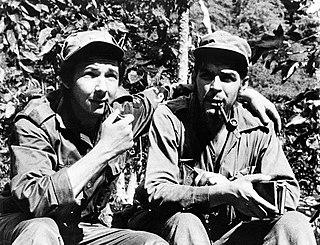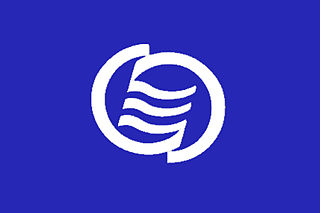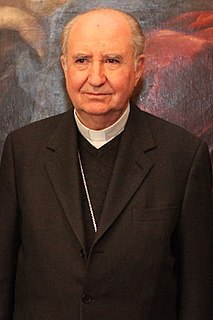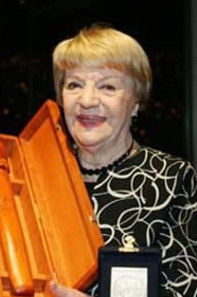
Cuba's foreign policy has been fluid throughout history depending on world events and other variables, including relations with the United States. Without massive Soviet subsidies and its primary trading partner, Cuba became increasingly isolated in the late 1980s and early 1990s after the fall of the USSR and the end of the Cold War, but Cuba opened up more with the rest of the world again starting in the late 1990s when they have since entered bilateral co-operation with several South American countries, most notably Venezuela and Bolivia beginning in the late 1990s, especially after the Venezuela election of Hugo Chávez in 1999, who became a staunch ally of Castro's Cuba. The United States used to stick to a policy of isolating Cuba until December 2014, when Barack Obama announced a new policy of diplomatic and economic engagement. The European Union accuses Cuba of "continuing flagrant violation of human rights and fundamental freedoms". Cuba has developed a growing relationship with the People's Republic of China and Russia. In all, Cuba continues to have formal relations with 160 nations, and provided civilian assistance workers – principally medical – in more than 20 nations. More than one million exiles have escaped to foreign countries. Cuba's present foreign minister is Bruno Rodríguez Parrilla.

Raúl Modesto Castro Ruz is a Cuban politician who is currently serving as the First Secretary of the Communist Party of Cuba, the most senior position in the communist state, succeeding his brother Fidel Castro in April 2011. He has also been a member of the Politburo of the Communist Party of Cuba, the highest decision-making body, since 1975. In February 2008, he was appointed the President of the Council of State and President of the Council of Ministers. He stepped down as President on 19 April 2018, but remains the first secretary of the Communist Party, still holding considerable influence over government policy.

The Cuban Revolution was an armed revolt conducted by Fidel Castro's revolutionary 26th of July Movement and its allies against the military dictatorship of Cuban President Fulgencio Batista. The revolution began in July 1953, and continued sporadically until the rebels finally ousted Batista on 31 December 1958, replacing his government with a revolutionary socialist state. 26 July 1953 is celebrated in Cuba as the Day of the Revolution . The 26th of July Movement later reformed along communist lines, becoming the Communist Party in October 1965.

Agencia EFE, S.A. is a Spanish international news agency, the major multimedia news agency in Spanish language and the world's fourth largest wire service after the Associated Press, Reuters, and Agence France-Presse. EFE was created in 1939 by Ramón Serrano Súñer, then Spain's Interior Minister.

The Association of Caribbean States is a union of nations centered on the Caribbean Basin. It was formed with the aim of promoting consultation, cooperation, and concerted action among all the countries of the Caribbean. The primary purpose of the ACS is to develop greater trade between the nations, enhance transportation, develop sustainable tourism, and facilitate greater and more effective responses to local natural disasters. Association of Caribbean States is a successor of the former Latin Union.

Francisco Javier Errázuriz Ossa is a Chilean prelate of the Catholic Church who served as Archbishop of Santiago from 1998 to 2010. He has been a cardinal since 2001 and was a member of Pope Francis' Council of Cardinal Advisers from its creation in 2013 until his departure in 2018.

Cuba, officially the Republic of Cuba, is a country comprising the island of Cuba as well as Isla de la Juventud and several minor archipelagos. Cuba is located in the northern Caribbean where the Caribbean Sea, Gulf of Mexico and Atlantic Ocean meet. It is east of the Yucatán Peninsula (Mexico), south of both the U.S. state of Florida and the Bahamas, west of Haiti and north of both Jamaica and the Cayman Islands. Havana is the largest city and capital; other major cities include Santiago de Cuba and Camagüey. The area of the Republic of Cuba is 110,860 square kilometers (42,800 sq mi). The island of Cuba is the largest island in Cuba and in the Caribbean, with an area of 105,006 square kilometers (40,543 sq mi), and the second-most populous after Hispaniola, with over 11 million inhabitants.
The 2006–2008 Cuban transfer of presidential duties was the handover of the title of president and presidential duties from longtime Cuban leader Fidel Castro to his brother Raúl Castro, the next-in-line-of-succession person in Cuba, following Fidel's operation and recovery from an undisclosed digestive illness believed to be diverticulitis. Although Raúl Castro exercised the duties of president, Fidel Castro retained the title of President of Cuba, formally the President of the Council of State of Cuba, during this period.
Cuba does not recognize same-sex marriage, civil unions, or any other form of same-sex unions. The Cuban Constitution prohibited same-sex marriage until 2019, and in May 2019, the Government announced that the Union of Jurists of Cuba is working on a new family code, which would address same-sex marriage.

The Community of Latin American and Caribbean States is a regional bloc of Latin American and Caribbean states thought out on February 23, 2010, at the Rio Group–Caribbean Community Unity Summit, and created on December 3, 2011, in Caracas, Venezuela, with the signature of The Declaration of Caracas. It consists of 32 sovereign countries in the Americas. Due to the focus of the organization on Latin American and Caribbean countries, other countries and territories in the Americas, Brazil, Canada and the United States, as well as the overseas territories in the Americas of France, the Netherlands, Denmark (Greenland) and the United Kingdom are not included.
Alejandro Castro Espín is a Cuban political and military figure. He holds the rank of colonel in the Interior Ministry of Cuba. He is the only son of Raúl Castro, the First Secretary of the Communist Party of Cuba, and Vilma Espín, one of the main leaders of the Cuban Revolution; he is a nephew of Fidel Castro.
The European Union – Latin America and Caribbean Foundation is an international organisation, established under public international law. The Foundation was entrusted with the mission of strengthening the bi-regional partnership between the European Union (EU) and its member states and the Latin America and Caribbean (LAC) States, enhancing mutual understanding and visibility among both regions and fostering active participation of the respective civil societies. Established in 2010 by the Heads of State and Government of the 61 member states and the EU, the EU-LAC Foundation coordinates and implements result-oriented initiatives in support of bi-regional relations.

Santiago Abascal Conde is a Spanish politician who has been the leader of Vox party since September 2014 and a member of the Congress of Deputies in representation of Madrid since 2019. Before the creation of Vox, Abascal, a former long-standing member of the People's Party, served as legislator in the Basque Parliament, founded the Foundation for the Defence of the Spanish Nation and exerted the role of director of publicly funded entities of the Community of Madrid.

Argentina–Cuba refers to the current and historical relations between Argentina and Cuba. Both nations are members of the Community of Latin American and Caribbean States, Latin American Integration Association, Organization of American States and the Organization of Ibero-American States.

Bélgica Castro Sierra was a Chilean stage, film, and television actress.

The Pablo Neruda Ibero-American Poetry Award is an annual award granted by the National Council of Culture and the Arts (CNCA) of Chile, through the National Book and Reading Council.

The 2011 CELAC summit was the founding conference of the Community of Latin American and Caribbean States. It was held on 2 and 3 December 2011 in Caracas, Venezuela with the participation of 33 countries.

The Presidency pro tempore of the Community of Latin American and Caribbean States is the office that represents the Community of Latin American and Caribbean States in international events.
The II CELAC summit or 2014 CELAC summit was the second ordinary heads of state summit of the Community of Latin American and Caribbean States. It was held on 28 and 29 January 2014 in Havana, Cuba.













